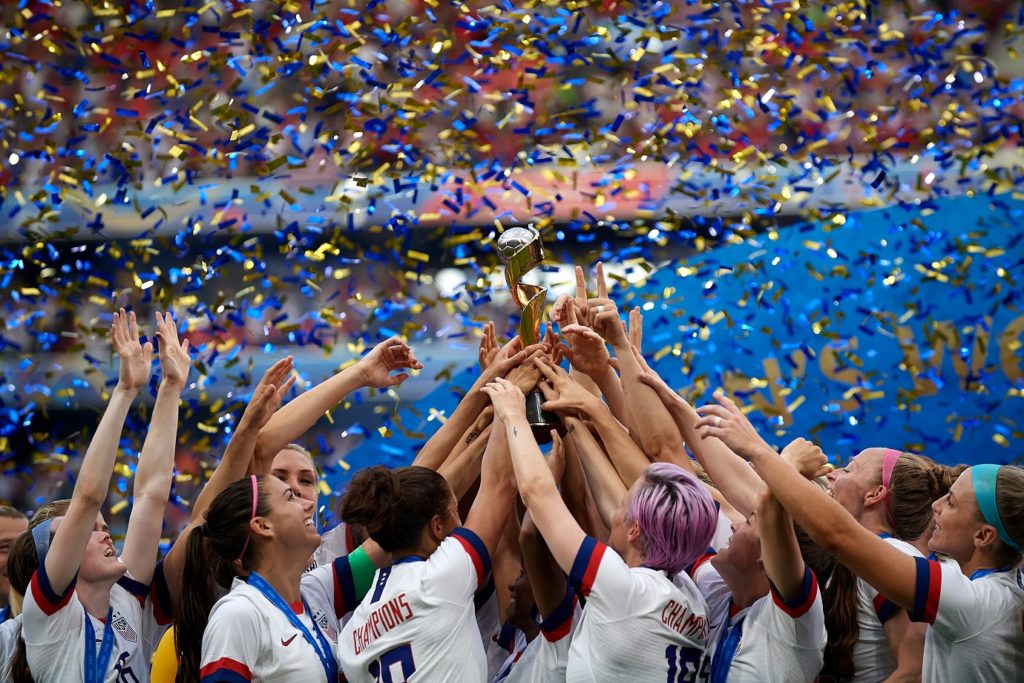Saudi Arabia’s tourist authority is reportedly set to sponsor the 2023 FIFA Women’s World Cup, co-hosted by Australia and New Zealand mid-year.
If FIFA soon confirms Visit Saudi’s sponsorship, as is widely expected, we must ask why the decision has been made in the face of Saudi Arabia’s appalling record on women’s rights, and its recent crackdown on women’s rights defenders.
A wealthy, oil rich nation, Saudi Arabia has a long history of using sport to improve its standing on the world stage and make itself appear as a modern nation, throwing money into sporting events and sports people in a multitude of ways.
Some recent examples include the breakaway LIV golf tournament bankrolled by Saudi Arabia’s sovereign wealth fund, Cristiano Ronaldo’s move to Saudi Arabian club Al Nassar, and the purchase of Newcastle United.
In 2021, a report from human rights organisation Grant Liberty found Saudi Arabia had spent at least $1.5 billion on sportwashing at major international sporting events.
With Saudi Arabia now making moves into the sponsorship world of women’s sport – which has historically struggled to attract sponsorship in the way men’s sport does – the condemnation has been swift. Especially so, given Visit Saudi’s expected sponsorship of the Women’s World Cup comes under FIFA’s new commercial partnership structure, which is designed to create revenue specifically for the women’s game.
It’s an exciting time in women’s sport, with competitions around the world slowly becoming more professional, sponsorship interest growing and female athletes becoming household names. As this progress occurs internationally, women’s opportunities in sport in Saudi Arabia have not been very forthcoming.
It wasn’t until 2020 that Saudi Arabia established its own national women’s football team, and until 2018, women were not permitted to enter stadiums to watch sporting events.
Women’s rights in other areas of life in Saudi Arabia have seen some small improvements in recent years, but women are still largely controlled by highly restrictive male guardianship laws.
Until 2018, Saudi Arabia was the only country in the world that had banned women from driving motor vehicles and having a driver’s licence.
In recent years, Women’s Agenda has reported on a number of cases where women in Saudi Arabia have been arrested and sentenced to long prison sentences for speaking out about women’s rights. In August last year, Salma al-Shehab was handed a 34-year prison sentence for using her Twitter account to retweet about women’s rights.
Other high profile women rights defenders, including Loujain al-Hathloul have experienced horrendous treatment at the hands of authorities.
Felix Jakens, a spokesperson from Amnesty International UK, has slammed Saudia Arabia’s sponsorship of the Women’s World Cup, telling SportsPro it was part of a “depressingly well established pattern”.
“Fifa should speak out about the need for human rights reform in Saudi Arabia and not merely allow its premier women’s tournament to be used for sportswashing, while players, coaches and fans should likewise challenge this crude exploitation of their sport by Saudi Arabia,” Jakens said.
As we approach the start of the Women’s World Cup in July and dollars are splashed, it is paramount that the repressive regime of Saudi Arabia is not forgotten.


